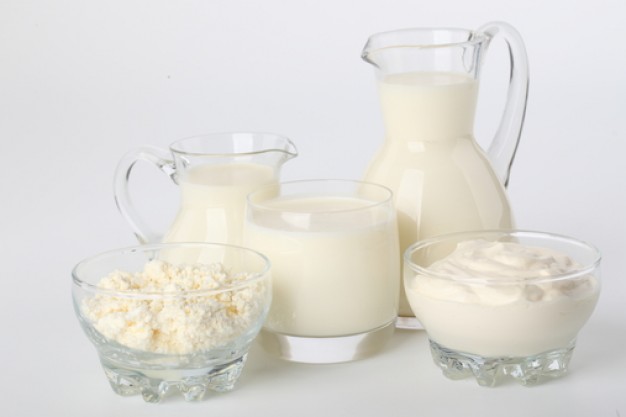
“Milk”, just the word itself sounds comforting!
The entire world of food and especially that of milk is surrounded with emotional and cultural importance. Milk was our very first food. Now, we are a nation of milk drinkers with nearly all of us, infants, the adolescents, adults and even the aged have at least a glass of milk daily.
Milk is often regarded as being nature’s most complete food. It earns this reputation by providing many of the nutrients which are essential for the growth of the human body. Being an excellent source of protein and having an abundance of vitamins and minerals, particularly calcium, milk can make a positive contribution to one’s health as a whole.
Healthy eating is a top priority for many individuals. People eat food, not nutrients – however the combination and amount of nutrients in the foods we eat can greatly affect our health. A healthy, balanced diet is essential in optimising health and reducing the risk of disease.
ROLE OF DAIRY PRODUCTS:
Making simple alterations to our diet and lifestyle can impact our bodies greatly and our long term health.
A healthy, balanced diet or as we call the ‘Food Guide Pyramid’ is made up of five main food groups and milk and dairy foods are one of these.
Dairy is the term used to describe milk-based or milk-related products. The dairy foods milk, cheese and yogurt are a natural source of nutrients such as protein and calcium and they provide a quick and easy way of supplying these nutrients to the diet within relatively few calories.
Incorporating milk, cheese and yogurt into our daily diet can contribute greatly to our nutritional intake and status.
Milk, cheese and yogurt provide the following beneficial nutrients in varying quantities
Calcium – for healthy bones and teeth
Phosphorous – for energy release
Magnesium – for muscle function
Protein – for growth and repair
Vitamin B12 – for production of healthy cells
Vitamin A – for good eyesight and immune function
Zinc – for immune function
Riboflavin – for healthy skin
Folate – for production of healthy cells
Vitamin C – for formation of healthy connective tissues.
Iodine – for regulation of the body’s rate of metabolism (how quickly the body burns energy and the rate of growth
1 glass of milk alone can make a contribution to the daily recommended intake of many important nutrients for all age groups.
Consumption of dairy products has also been associated with numerous health benefits including the following:
Bone health
-Dairy products provide calcium, which is essential for bone growth and development..
Teeth
-Dairy products contain calcium and other tooth friendly nutrients, which help teeth, grow and keep them healthy.
It is the only drink -excluding water which is recommended by dentists to be safe to consume between meals. Milk and cheese are very beneficial for weaning babies and young children as they not only provide many of the nutrients required for general growth and development, but also offer good levels of the specific nutrients needed to ensure development and maintenance of healthy teeth
No Obesity:
Milk is also not a high fat product. Whole milk contains 4% fat, semi-skimmed milk contains 1.7% fat, 1% fat milk contains 1% fat and skimmed milk contains 0.3% fat.
Reduce Blood Pressure
Dairy products help reduce blood pressure. A diet containing fruit and vegetables, low-fat dairy products and low salt helps reduce blood pressure (Dietary Approaches to Stop Hypertension: DASH diet).
The potassium, magnesium and calcium found in dairy products are all linked to healthy blood pressure.
Cardiovascular disease
Consumption of milk and dairy has also been associated with a reduced risk of suffering a heart attack-
Type 2 diabetes
Consumption of low fat dairy products has been linked to a reduced risk of developing type 2 diabetes.
Hydration
Regular fluid intake throughout the day is essential to be well hydrated. Dietetic experts recommend drinking 6-8 glasses of fluid per day. As milk contains a high percentage of water, it is a useful vehicle for rehydration.
Eating habits
People who consume dairy products have better intake of nutrients than people who do not consume dairy products. Introducing dairy products at an early age helps establish good eating habits for later in life.
Dairy products, such as milk, yogurt, cheese and cottage cheese, contain essential nutrients and may offer health benefits. Dairy products are high in calcium and vitamin D, both of which help to maintain strong bones and teeth. Dairy products also contain potassium, which offers heart protection and may help to lower blood pressure. In addition, dairy products are high in muscle-building proteins.
Here is a list some of the available dairy products in the market.
- Butter
- Ghee
- Curd
- Cheese
- Cottage cheese
- Cream
- Buttermilk
- Lassi
- Condensed milk
- Processed milk powder.
- Ice-creams. And many more.
Well, a lot of variations and innovations can be incorporated with few of these items in our day to day life which eventually will enhance our lifestyle .We can split its intake in our daily meals, with a controlled portion size.
Our breakfast which ideally should be “king size” can comprise of many different variations of dairy products so as to remove the boredom and also from nutritional point of view.
Few examples of dairy products which can be introduced in breakfast are: Porridge, cottage cheese pancakes, scrambled cheese, whole wheat cottage cheese naan, cheese dosa whole wheat toast with butter, whole wheat vegetable cheese sandwiches, cheese omlette.etc.
For mid-mornings we can include buttermilk or lassi or low-fat cream mixed with fruits (lesser the amount of cream.)
Well for our main meals, we have abundant options. We can include paneer both (home-made and processed) prepared in various forms. Right from sauté paneer to traditional style, from Chinese to sizzlers.
Next we have the most credited options, that is “raita”. A combination of curd with different vegetables or fruits (with or without seasoning). Preferably unflavoured curds are the best.
We can also make different recipes of curd –fruit salad. .
Another variety is ghee-which is widely used in Indian cuisine. A slight dash of it enhances the flavour and aroma of any vegetarian and non-vegetarian food.
Dairy products are cherished by the health organizations as an essential food for bone health. But, not all dairy products are the same. Essential is the sugar content in it.
However, our health and vitality depends not only on how much dairy products we consume but, also important is their quality. Like the old Indian adage goes, ‘you are what you eat’.

 Exercise is essential for good health. In exercises we often give importance to the workout pattern, form and technique as it enhances the performance. Today, through this blog I would like to focus more on the breathing technique during Weight Training
Exercise is essential for good health. In exercises we often give importance to the workout pattern, form and technique as it enhances the performance. Today, through this blog I would like to focus more on the breathing technique during Weight Training




